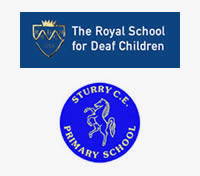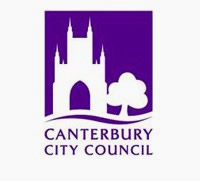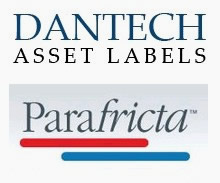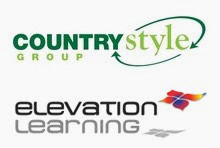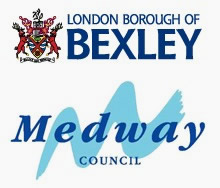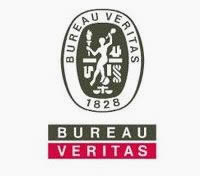Search Engine Optimisation Information
This page gives general information on the subject of search engine Optimisation and some advice on starting to make your website visible to search engines.
- An Introduction to Search Engine Optimisation
- Affect of hosting and domain names on Search Engine Optimisation
- Search Engine Optimisation and Meta Tags
- Affect of page copy on Search Engine Optimisation
- Search Engine Optimisation and links
- Usefulness of directories to Search Engine Optimisation
- Realistic timescales for Search Engine Optimisation
- Search Engine Optimisation Techniques
- Search Engine Optimisation services offered by Cornish WebServices
- Choosing a Search Engine Optimisation Company
- Our credentials as a SEO Company
Search Engine Optimisation
What is search engine Optimisation? This is the process of writing a website to be easily indexed by the major search engine robots of the major search engines. With regards search engine Optimisation, the most important search engines are Google, Yahoo and MSN. The relative importance of these 3 depends upon your target market (businesses, small business, home users) and your location (which country you are targeting - not living in).
To receive many visitors on the web your website should appear in the top 20 (ideally the top 5 or 10) of the search engine results for a particular keyword or phrase.
The search engine Optimisation information given here is very basic, but this is a first step towards improving your rankings in the search engines. The most important aspect is in fact having a well written and well structured website.
It is also very important to avoid any short term 'search engine spamming' tactic such as large numbers of repeated invisible words. The major search engines check for this and penalise websites using these tactics usually by not listing them at all. In America this has been termed 'black search engine Optimisation'.
Hosting and domain names
It is best to avoid many of the free hosting accounts as some of these are ignored or considered less important by the search engines. It is also important to have a reliable host; some of the most important search engines penalise your website if it is unavailable when they try to index your site.
Multiple copies of a website on different domain names are also penalised by many search engines. Their aim is to list relevant different websites. Many organisations own multiple domain names, and provided these are set up correctly this is no problem.
The META tags and search engine Optimisation
There are a large number of META tags, but just a few that are important for search engine Optimisation.
The title tag and search engine Optimisation
The title tag is the most important tag that is used in the search engine Optimisation process. This is for two reasons. Firstly the search engines place great importance on the text within this tag. Secondly, the content of this tag is often used to describe your webpage, and so it should make sense and not just be a list of keywords. A very high number of websites have a title of either 'homepage' or 'index' - neither of which gives any information to potential website visitors.
Once your website is on the first page of the search engine, you need it to look relevant, and a title that is simply a list of keywords will not encourage clicks onto your site. The aim of search engine Optimisation is to attract visitors, not to achieve no 1 position.
The description tag and search engine Optimisation
The description tag is the second most important tag that is used in the search engine Optimisation process. The text within the tag does appear to be indexed by the search engines. But also, the first few lines, or parts of the description tag are often returned with the search results. It is therefore important that these make sense and encourage potential visitors to view your website.
The Keywords tag and search engine Optimisation
In the early days of search engines, this was a very important tag. But it was then abused and now most search engines ignore this tag. It is still worth using for the few search engines that do make use of it. It is best to place the most important keywords at the start of the list.
Other pages and search engine Optimisation
The meta tags on each page should be different and each should reflect the specific page content. The search engine spiders will crawl through many pages of a well designed website, and this gives the opportunity for visitors to enter the website at many different pages. In relation to search engine Optimisation, this means that different pages will gain a different ranking within the search engines for different keywords.
The page copy text and search engine optimisation
Search engines cannot see! This means that search engines cannot gain any meaning from the content of image files. Images can still be used, and by using the 'alt' tag a summary of their content can be given.
One of the most important parts of any website with regard search engine Optimisation is the text content. The more text the better. However users do not like scrolling through more than 5 pages and if you use tables for layout then very large amounts of text could slow down the time taken to load the page.
Other Links
Obtaining links from other websites is really important for two reasons. Firstly, many search engines consider your website to be more important if many other websites link to it. But, do not use 'link farms' (these are websites whose sole purpose is to exchange links) as these can adversely affect your ratings with the major search engines. Secondly, many visitors actually arrive at websites through related links, and not just through search engines - and so these links are useful in themselves.
Search Engine Directories
Search Engine Directories provide many of the search results for the major search engines. You can hand-submit to the major directories for free - this takes between weeks and many months to get listed. Alternatively you can submit via paid inclusion for faster results. A word of caution here - check that your website is well optimised first, as these paid inclusions only guarantee that you will be indexed in the directory, and a poorly optimised website may end up at being listed near the bottom of any search.
We do not usually recommend using any form of paid inclusion for the main search engines - a well written website should get naturally listed within a few weeks.
There are many UK specific search engine directories and if your website is UK based, it is a good idea to be placed in these as people often use the search term UK to refine the keyword search. Similarly within the UK there are many county specific directories - for example Kent based directories - and many companies or organisations looking for a product or supplier prefer a local contact. They are therefore likely to search on county or region specific terms such as 'Kent' or 'search engine Optimisation Kent' or 'Kent search engine Optimisation'. If your company is based near several counties, then include them - such as 'search engine Optimisation company in Kent, Sussex and Surrey'.
There has been a trend to include links to every town and country within your website and for while this was a 'tactic' that did work but was not liked by Google and it appears that Google are trying to alter their algorithms to penalise this tactic. We do not recommend using this type of 'trick' to gain higher search engine rankings.
Search Engine Optimisation timescales
Websites can be created quickly and uploaded onto a host quickly. But the results from search engine Optimisation take time.
The major search engine is Google and it can take several weeks for the search engine spiders to index your website pages. And once they have indexed your pages it can take a month or so before Google assesses how important it considers your website to be. This is referred to as the Page Rank of a webpage. Historically, Google used to re-jig all the Page Rank values about once a month - but 3 month gaps sometimes occurred. From 2004 onwards, Google has moved towards a more continuous updating process, but there appears to be a significant time lag in rankings from when the pages are indexed.
This means that search engine Optimisation always take time. Realistically, for Google this means months. Timescales on the other major search engines have been very variable. For much of 2004, with MSN and Yahoo we were able to get increased rankings within days. Towards the end of 2004 their updating timescales appear to have slowed down.
Summary of search engine optimisation techniques
The above basic search engine Optimisation techniques are very simple and effective to carry out and will give some improvement in search engine ranking.
There are many other methods of optimising a website more fully, and this may require rewriting the website code. Some DIY websites look great. But all the effort has been in the visual appearance, with little knowledge of search engine Optimisation. Many of these do not appear at all in Google.
These websites can be optimised (often keeping the design virtually unchanged) to produce a large increase in website visitors.
Search engine Optimisation services offered by Cornish WebServices
Whenever we design websites, we automatically create search engine optimised websites. But we are also able to optimise existing websites to improve their visibility on the major search engines.
Cornish WebServices have completely rewritten many websites (sometimes with almost no visible change apart from faster loading) to increase rankings on the major search engines. We have experience at handling anything from small static websites of a few pages, to large static websites, and dynamic websites.
There is a myth that dynamic websites or shopping carts cannot be search engine optimised. Although many shopping carts and database driven websites are written (badly) so that they are not indexable by Google, this need not be the case. Cornish WebServices can successfully optimise these types of website.
How to choose a search engine optimisation company
A good search engine optimisation company should not need to advertise their services through PPC advertising, but should appear naturally high in the search engine rankings. Therefore avoid any SEO company that advertises through PPC listings.
Ideally we would recommend choosing any company that appears high in the rankings for words such as 'search engine optimisation'. However some of the companies in the top few places are using short term 'unethical tactics' that are frowned upon by Google. These risk being dropped from Google. If a company uses such tactics on their own website, then we advise not using them as you risk your website being removed completely from Google.
The best choice is therefore a search engine optimisation company that appears on the top few pages of the search engines AND guarantees only to use ethical techniques.
Cornish WebServices only use such techniques. We do not advertise our search engine optimisation services through paid advertising, but successfully rely on visitors from the major search engines and from recommendations for all our search engine optimisation work.








